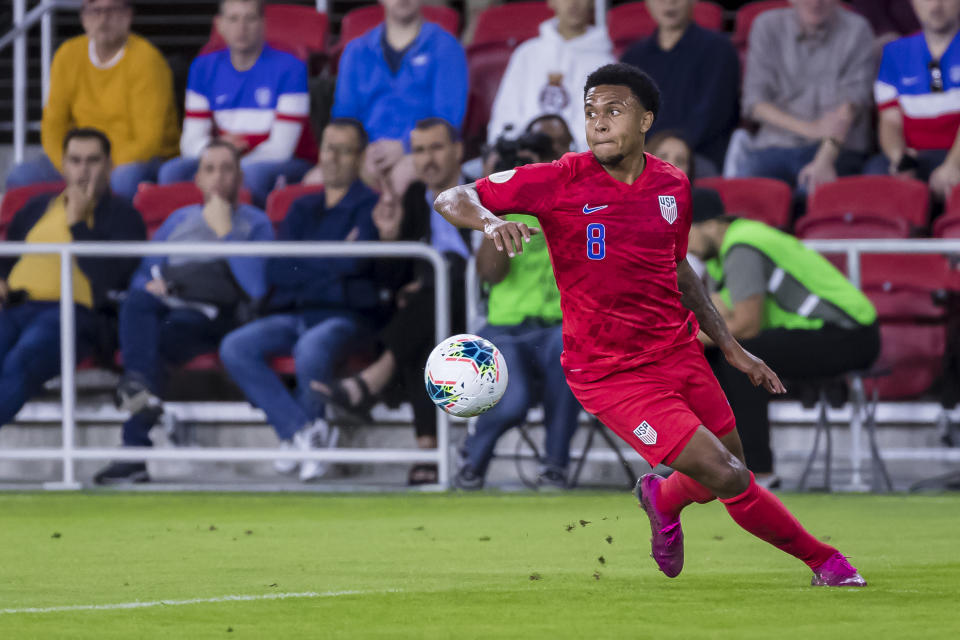How we'd fix soccer: USMNT must restore its never-say-die spirit
It’s not entirely accurate or fair to suggest that the United States men’s national team, as it stands right now, is broken and therefore in need of fixing.
Rock-bottom for the once-proud program — the U.S. was one of just eight countries to reach the knockout stage at the 2010 and 2014 World Cups, joining Argentina, Brazil, Chile, Germany, Uruguay, Mexico and the Netherlands — came almost three years ago now, when the Americans failed to qualify for Russia 2018 in spectacular fashion.
Since then, steps have been taken to ensure a swift return to the global stage. A new coach, former U.S defender Gregg Berhalter, was eventually hired. Legit blue-chip prospects Tyler Adams and Weston McKennie emerged as worthy sidekicks to fellow youngster Christian Pulisic, who at 21 is perhaps already the best player the U.S. has ever produced.
But unless (and until) the USMNT actually qualifies for the 2022 World Cup in Qatar, it’s fair to suggest how it can get better. And for all the USMNT’s talent, the area in which the current squad must improve the most is in its collective refusal to lose.

As promising as the new guard is, the harsh reality is that U.S. still isn’t nearly deep enough to compete man-to-man with the elite powers. To succeed at the highest level, the Americans must always be more than the sum of its parts. They must be willing to leave everything on the field for their country, even if that means returning to the European clubs that pay their hefty salaries exhausted and/or banged-up.
After the USMNT lost a competitive match to Canada for the first time in nearly four decades last October, Berhalter admitted that the CONCACAF minnows simply wanted it more. “The biggest disappointment in my eyes,” he said that night about his side, “was the desire.”
Fortunately for Berhalter and frustrated U.S. supporters, the Americans responded the way they needed to in the rematch, dominating the Canadians from start to finish the following month without several injured starters, including Pulisic. The 4-1 victory helped the them advance to Nations League semifinals against Honduras. (That match, scheduled for June, has been postponed indefinitely because of the coronavirus pandemic.)
One would hope that the lesson has been learned. The best American teams of all time punched well above their weight because they fought for each other. Bob Bradley’s 2007-2010 teams were as rough as sandpaper, a 90-minute nightmare to play against. (Ask Spain.)
U.S. icon Landon Donovan said that the practices leading up to the 2002 World Cup, where the Americans came within a hair of the semifinals, were the most hotly contested of his career. “Every time we came into camp,” Donovan said, “training was an absolute war.”
Much of that fighting spirt was lost during Jurgen Klinsmann’s five-year spell in charge from 2011-2016. Still, the 2017 team was more than good enough on paper to make it to Russia, but a toxic lack of camaraderie went a long way toward sealing their embarrassing fate. The togetherness still hasn’t fully returned.
There’s a new generation coming through the ranks now. Pulisic and Adams, in particular, seem to have the same sort of cold-blooded drive and ambition that transformed Clint Dempsey from overlooked teenager to Premier League star in his 20s to the joint-top scorer in U.S. history, along with Donovan, when he retired in 2018. The hard-running Jordan Morris, Dempsey’s former teammate with the Seattle Sounders, is emerging as a key leader under Berhalter, who was a member of that no-nonsense 2002 team.
While tactics and players change through the years, culture must remain. When the entire U.S. player pool adopts that same all-for-one ethos that defined its predecessors, only then will the USMNT be able to harness its full potential and earn back the respect it has lost in recent years.
More from Yahoo Sports:



